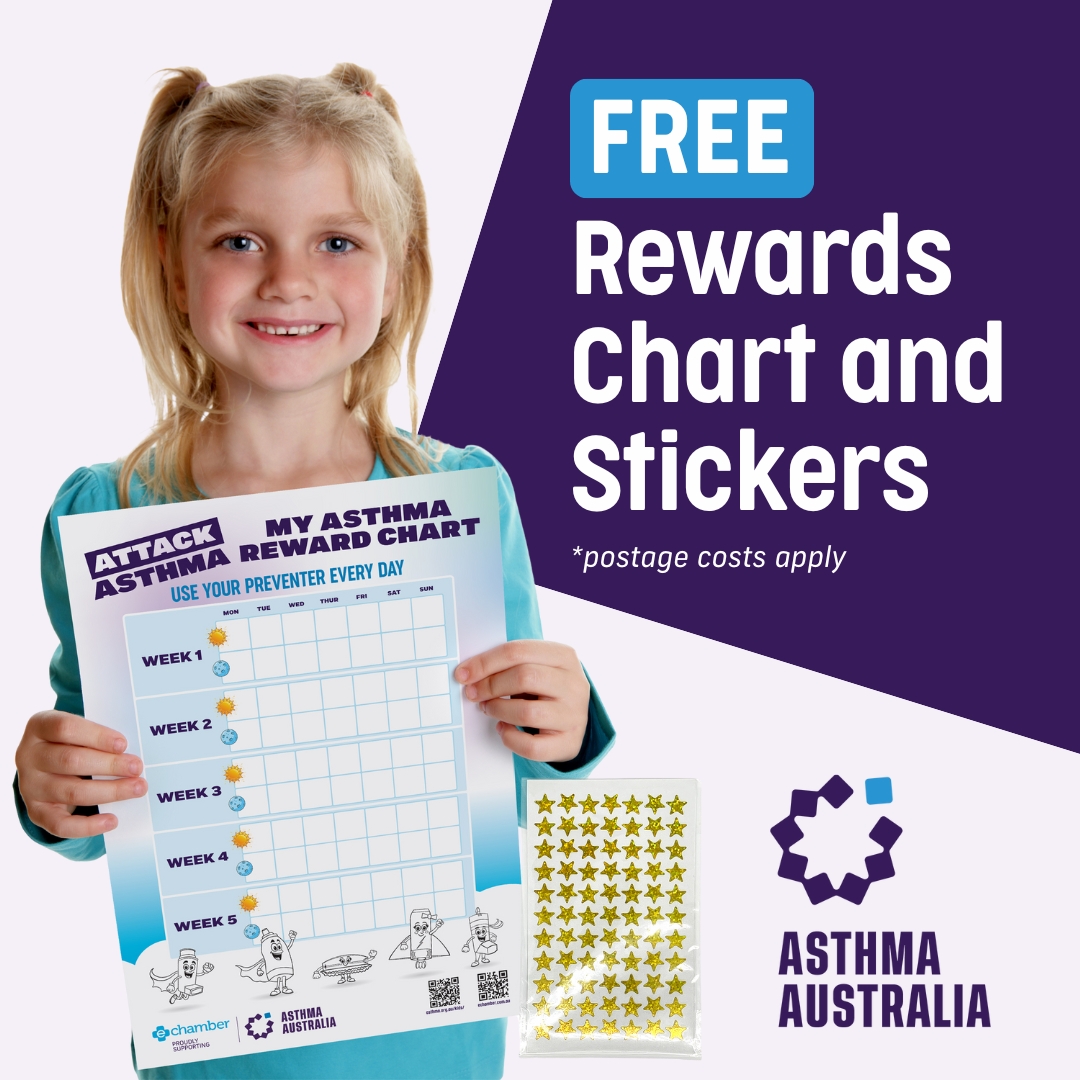It’s Asthma Week (1-7 September), and Asthma Australia is here to help Australians with asthma and hay fever through pollen season. We’ve partnered up with experts in their respective fields to put together helpful and practical information to stay fit so you can breathe easier this spring.
Do you avoid exercising? (It’s okay, you’re not alone). But, aside from avoiding it because the morning is too dark or too cold, or your favourite socks are in the wash, are you avoiding exercise because of your asthma? With our expert research, tips and tricks, you might not need to dodge it any longer.

Did you know moderate exercise can be good for asthma? It really can. We know some people with asthma have avoided exercise in the past because of poor health or they experience wheezing, but this can usually be prevented with a good warm up (don’t skip it) and the right medications (read our blog on medications for asthma and hay fever here).
We consulted with our expert and Asthma Australia friend, Professor John Upham, to find out a little more about how exercise can benefit you this spring.
“The reality is that we’ve known about the general health benefits of exercise for a long time, but we’re now starting to see evidence that exercise is good for asthma as it helps reduce inflammation in the air passages,” says Professor Upham.
Tara Buckley from Melbourne knows the value of exercise. “Asthma doesn’t stop me from exercising, it’s my reason for exercising. Previously I would have multiple asthma flare-ups per year – it was awful. But since exercising consistently I’ve found that as my fitness level improves, my breathing improves. Now I’m breathing better than I ever have before.”
So, what can you do to make exercise part of your routine this spring?
The best defence is a good offense
We know the most important approach to managing and preventing asthma symptoms during spring involves using an appropriate inhaled preventer medicine. Asthma preventer medicines need to be used for around two to three weeks before they are effective at preventing symptoms and reducing sensitivity to triggers like pollen so if you aren’t already using one, the time to start is now. If prescribed a preventer, it needs to be used daily, and as prescribed, to maintain the anti-inflammatory benefit.
Puff before and don’t be shy
If you get exercise induced asthma, discuss with your prescribing doctor who might recommend taking at least two puffs 15 minutes before you exercise. Your reliever is your emergency first aid medication. Keep your mind and airways at ease by always having this on hand during your workouts. You need good oxygen intake to support your body during exercise.
Keep it moderate
While exercise can be good for your asthma, research is showing that moderate exercise is better to initially reduce inflammation, than intense exercise. Keep in tune with your body and know your limits. Try stepping up your routine from light to moderate at the beginning.
Does swimming help?
Research into swimming and asthma showed that swimming is safe and improves general physical fitness. However, the studies do not demonstrate a change in asthma symptoms or a reduction in asthma flare-ups. If you enjoy it and don’t find it to be a trigger for you, feel free to keep on swimmin’.
Know when to keep it in indoors
If you get hay fever and asthma, you would be no stranger to itchy and watery eyes, an itchy throat, runny nose and sneezing. It’s not fun. And we know that pollen can be a trigger.
If it’s a high pollen day, try to skip the outdoor run and swap in an indoor session. There are plenty of ways you can break a sweat indoors in front of the TV or your laptop (maybe while checking out the Asthma Australia YouTube channel?). How do you know if it’s a high pollen day? Check out our blog post on the best pollen monitoring apps here.
There are plenty more ways you can get your asthma and hay fever under control this spring. Check out our blog to find out more.
We are very thankful to Professor John Upham and Tara Buckley for their valuable advice and assistance with the development of this guide.
Asthma Australia represents and supports the 2.7 million Australians living with asthma. To speak with an Asthma Educator call 1800 ASTHMA (1800 279 462).





 1800 278 462
1800 278 462



